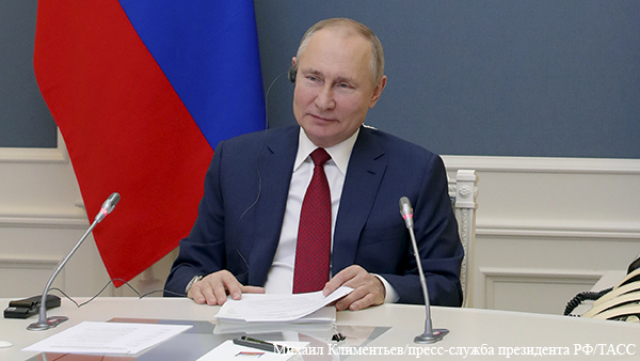TSAMTO, February 1. On January 29, Russian President Vladimir Putin signed the Federal Law "On Ratification of the Agreement on the Extension of the Treaty between the Russian Federation and the United States on Measures for the Further Reduction and Limitation of Strategic Offensive Weapons of April 8, 2010".
The Federal Law was adopted by the State Duma on January 27, 2021 and approved by the Federation Council on January 27, 2021.
Certificate of the State Legal Department (posted on the official website of the President of Russia)
The federal Law ratifies the Agreement on the Extension of the Treaty between the Russian Federation and the United States of America on Measures for the Further Reduction and Limitation of Strategic Offensive Weapons of April 8, 2010, concluded on January 26, 2021 between Russia and the United States in the form of an exchange of notes.
The Treaty between the Russian Federation and the United States of America on Measures for the Further Reduction and Limitation of Strategic Offensive Arms was signed for a period of 10 years in Prague on April 8, 2010, entered into force on February 5, 2011 and is valid until February 5, 2021.
The Agreement provides for an extension of the Contract for five years, until February 5, 2026.
The Contract is a package of documents that includes the Contract itself, the Protocol to it and the annexes to the Protocol.
The Treaty establishes restrictions and limits on strategic offensive weapons (START); provisions concerning the scope, deployment, inspection, re-equipment and elimination of START; provisions related to confidence-building measures, information exchange, the use of national technical controls, and cooperation with third countries.
The provisions of the Protocol and its annexes specify the articles of the Treaty and provide for the procedure for its implementation.
The Treaty applies to existing types of heavy bombers (TB), intercontinental ballistic missiles (ICBMs) and submarine-launched ballistic missiles (SLBMs), including ICBMs and SLBMs in non-nuclear equipment, if created, as well as ICBM and SLBM launchers (PU).
The Treaty provides that the total quantities of START available to the Parties should not exceed:
700 units for deployed ICBMs, deployed SLBMs, and deployed TB;
1550 units for warheads on deployed ICBMs, warheads on deployed SLBMs, and nuclear warheads counted for deployed TB (with each deployed TB conditionally counted for one nuclear warhead);
800 units for deployed and non-deployed ICBM and SLBM PU, as well as deployed and non-deployed TB.
The implementation of the Agreement will not require additional budget allocations from the federal budget.
The extension of the Treaty meets the national interests of the Russian Federation, preserves transparency and predictability of strategic relations between Russia and the United States, supports strategic stability in the world, and will also have a positive impact on the international situation and will contribute to the development of the nuclear disarmament process.

